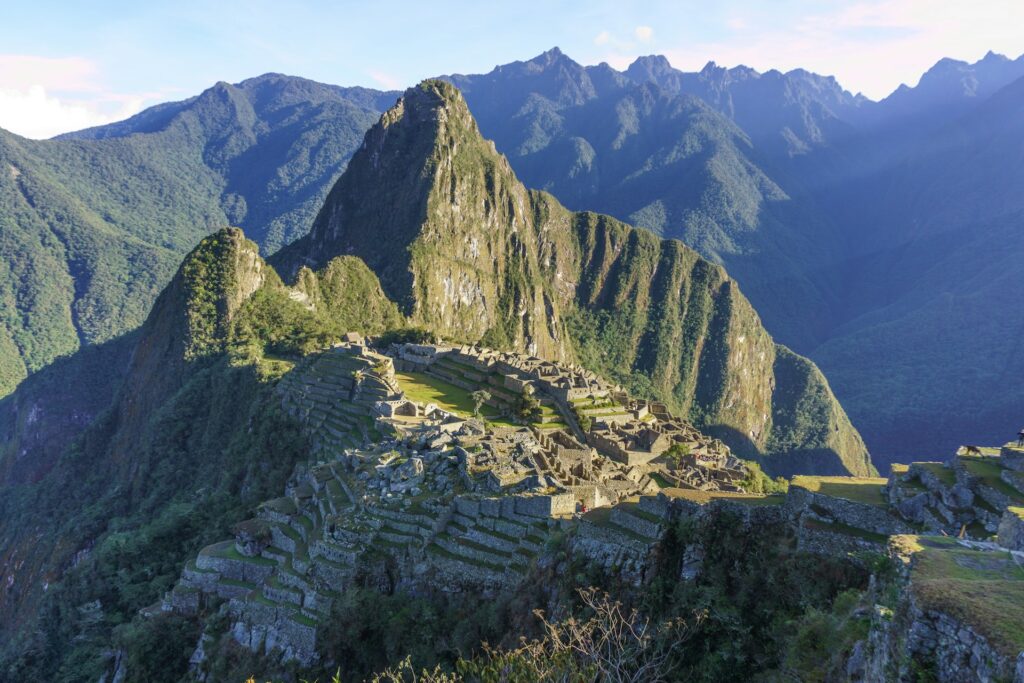Zanzibar is a tropical paradise known for its beautiful beaches, vibrant culture, and historical landmarks.
However, one question that comes up frequently among travelers is: Do I need malaria tablets for Zanzibar?
In this guide, we’ll explore the malaria risk on the island, provide expert recommendations, and help you decide if malaria tablets should be part of your travel preparation.
Assessing Zanzibar’s Risk of Malaria
Zanzibar’s warm and humid climate (off the coast of Tanzania) creates favorable conditions for mosquitoes. But is the malaria risk high enough to warrant taking or bringing preventive medication with you?
The short answer – Likely yes, especially if you’re traveling to rural areas or spending time in coastal lowlands. Mosquitos are common in this archipelago, and contracting a potentially life-threatening disease (like malaria during travel) is a major concern – especially if medical resources aren’t readily available nearby.
Over the past two decades, Zanzibar has made progress in malaria control through government-led eradication programs, widespread distribution of mosquito nets, and public health campaigns. As a result, malaria cases have declined substantially, risk still persists. Cases are most common during and after the rainy seasons (typically March–May and November–December) when mosquito populations are at their peak. Rural villages, agricultural zones, and coastal wetlands tend to carry a higher risk than resort areas with strong mosquito control measures.
Do Doctors Recommend Malaria Tablets for Zanzibar?
Doctors and health experts generally recommend malaria tablets for travelers heading to Zanzibar, especially during the high-risk periods.
Even if you’re planning to stay in more urban or tourist-heavy areas, it’s important to remember that malaria-transmitting mosquitoes can be found all over the island.
Who needs malaria tablets the most? If you’re staying in rural or coastal areas, or if you’re visiting during the rainy season when mosquitoes are more active, you should strongly consider taking malaria medication as a precaution.
Types of Malaria Medication for Zanzibar
There are several different types of malaria tablets that doctors commonly prescribe for travelers to Zanzibar. Here are a few of the most popular options:
Malarone (Atovaquone-Proguanil)
- Malarone is often considered the top choice for malaria prevention due to its high effectiveness and relatively mild side effects.
- It’s typically taken daily, starting a day or two before you enter a malaria-risk area and continuing for seven days after you leave.
- The convenience of short-term use and fewer side effects makes Malarone a preferred option for many travelers, especially those who don’t want to be on medication long after their trip is over.
Malarone Prescription Online ➜
Doxycycline
- Doxycycline is another commonly prescribed malaria tablet, known for its affordability. However, it must be taken daily and continued for four weeks after leaving a malaria-risk area, which can be a disadvantage for some travelers.
- This medication can also cause side effects like sun sensitivity and gastrointestinal issues, which might make it less appealing for those planning to spend a lot of time in the sun.
Mefloquine
- Mefloquine, also known by the brand name Lariam, is less commonly prescribed due to its potential for moderate-to-severe side effects.
- This includes insomnia, dizziness, and in rare cases, psychological effects.
- Mefloquine is taken once a week, which may appeal to those who prefer fewer doses.
Seasonal Variations in Malaria Risk on Zanzibar
The risk of contracting malaria in Zanzibar isn’t constant throughout the year. The rainy seasons, which occur from March to May and November, create ideal conditions for mosquitoes to breed and spread malaria. During these periods, the risk of malaria is higher, and taking preventive measures like malaria tablets becomes even more important.
During the dry season, the mosquito population decreases, and the malaria risk drops, but it doesn’t disappear entirely. Even if you’re visiting Zanzibar during the drier months, it’s still wise to take preventive steps, especially if you’ll be in areas with standing water, like rural villages or areas near the coast.
Preventing Malaria Without Tablets
While taking malaria tablets is an important part of protecting yourself, it’s not the only way to reduce your risk. Here are some additional strategies to prevent mosquito bites and lower your chances of contracting malaria in Zanzibar:
Use Insect Repellent
Make sure to use an insect repellent that contains DEET, picaridin, or oil of lemon eucalyptus. Apply it to all exposed skin, especially during dusk and dawn when mosquitoes are most active. Reapply regularly, particularly after swimming or sweating.
Wear Protective Clothing
Long sleeves, long pants, and socks can create a physical barrier between your skin and mosquitoes. Light-colored clothing is better, as mosquitoes are more attracted to darker colors.
Stay in Air-Conditioned Rooms
When reserving accommodations, opt for locations that have air conditioning or tightly sealed windows and doors. Mosquitoes are less likely to enter air-conditioned rooms at decreased temperatures, which lowers your risk of being bitten during the night.
Sleep Under a Mosquito Net
If you’re staying in areas without air conditioning or fully sealed windows, sleep under a mosquito net treated with insecticide. This can provide an extra layer of protection while you rest.
Eliminate Standing Water
Mosquitoes breed in stagnant water. If you’re staying in a villa or guesthouse, check that there aren’t open containers, buckets, or puddles nearby. Even small amounts of standing water can attract mosquitoes.
Time Your Activities Wisely
Mosquitoes that spread malaria are most active from dusk to dawn. When possible, limit outdoor activities during these peak biting times, or take extra protective measures if you’ll be out.
How to Get Malaria Tablets for Zanzibar
Obtaining malaria tablets before your trip to Zanzibar is easier than ever, thanks to telehealth services that offer online consultations and prescription delivery. You can consult with a licensed physician, discuss your travel plans, and get the right medication delivered directly to your home.
Why choose an online consultation? Online consultations can save you time and money compared to visiting a traditional travel clinic. You can avoid long waits and potentially higher costs by opting for a telehealth service that offers transparent pricing and quick prescription delivery. Many services also include ongoing access to your physician, so you can follow up with additional questions or concerns without booking another appointment.
What If You Get Malaria in Zanzibar?
While taking preventive measures like malaria tablets and using insect repellent will greatly reduce your risk, it’s still possible to contract malaria. If you develop symptoms like fever, chills, headaches, or muscle aches while in Zanzibar, seek medical help immediately.
Zanzibar’s healthcare system is equipped to handle malaria cases, with clinics and hospitals offering diagnostic tests and treatment. However, the quality and availability of healthcare can vary, especially in more remote areas, so it’s important to know where the nearest medical facility is located.
Symptoms of Malaria to Watch For: Mild or Severe
One of the challenges with malaria is that its symptoms can resemble the flu, which makes it easy to overlook at first. However, recognizing them early is critical to getting timely treatment.
Common mild symptoms include:
- Fever and chills – These often come in cycles, but may also feel continuous.
- Sweating – Profuse sweating often follows chills and fever spikes.
- Headaches – Can range from mild to severe and may worsen over time.
- Fatigue and weakness – A general feeling of exhaustion, sometimes extreme.
- Nausea, vomiting, or diarrhea – Digestive issues may appear alongside fever.
- Muscle aches and body pain – Similar to what you might experience with influenza.
Symptoms usually begin 7–14 days after being bitten by an infected mosquito, but in some cases, they may appear later—especially if you’re taking preventive medication, which can delay onset.
While mild cases can be mistaken for a flu-like illness, malaria can quickly become severe if untreated.
Warning signs of severe malaria include:
- Confusion or altered mental state
- Difficulty breathing
- Seizures
- Jaundice (yellowing of the skin or eyes)
- Severe anemia or weakness
These symptoms require immediate emergency medical attention.
When In Doubt, Speak with a Doctor
Ultimately, whether or not you need malaria tablets for Zanzibar depends on your travel plans, the time of year you’re visiting, and your personal risk tolerance.
If you’re staying in a high-end resort with air conditioning and plan to take precautions like using insect repellent and wearing protective clothing, the risk may be lower. However, if you’re traveling to rural areas or visiting during the rainy season, taking malaria tablets is strongly recommended.
In the end, it’s always better to be over-prepared when it comes to your health. Services like Runway Health offer convenient online consultations, allowing you to get malaria tablets delivered to your door, making it easy to protect yourself before your trip to Zanzibar.
By combining preventive measures like taking malaria tablets, using insect repellent, and staying in well-screened accommodations, you can significantly reduce your risk of contracting malaria and enjoy your trip to Zanzibar with peace of mind.

